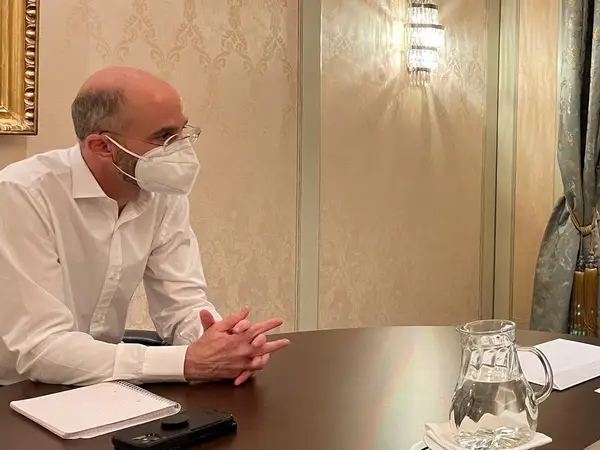Since the saga of US envoy for Iran Robert Malley unfolded on Thursday, government officials in Tehran have remained silent, but others had plenty to say.
Iran International broke the news early Thursday afternoon in DC that Malley, the Biden administration’s point man in talks with Iran has been put on leave and his deputy is now in charge as acting Iran envoy.
Major US news outlets soon began reporting on the development and soon it became clear that Malley was put on “unpaid leave” the same day when Iran International was asking questions from the State Department about his long absence and review of his security clearance.
Iranian government news agency IRNA in a note tried to put a positive spin and claimed that Malley’s removal was perhaps necessary to facilitate an agreement. However, Malley was considered to be defender of compromise with the Islamic Republic, not an opponent of deals with Tehran.
Some Iran watchers and many Iranian activists opposed to the Islamic Republic had long questioned Malley’s appointment as special envoy, pointing out that he was biased in favor of the Iranian regime and had been one of the architects of the 2015 nuclear deal that many believed was a flawed deal.
National Review quoted “a senior congressional foreign policy aide” who accused the Biden administration of lying about Malley’s status for months.
“They told Congress that Malley was on leave, because if they told the truth it would give away the game,” the aide was quoted as saying. “Malley has been dialoguing with Iran for years, refusing to enforce sanctions, letting Iran get within reach of nukes, attacking everyone who criticized Iranian terrorism — Europe, Saudi Arabia, Israel — and after all that something happened that got his security clearance suspended. So of course they lied.”
Amir-Farshad Ebrahimi, journalist and Senior Researcher at Global Institute for Democracy and Strategic Studies"(GIDSS), drew attention to Malley’s reported secret meetings with Iran’s UN ambassador Saeed Iravani late last year, first reported by Iran International in January. Ebrahimi wrote in a tweet that Israel showed a sharp reaction to the White House about these meetings and Malley’s “and Malley’s fate was sealed” at that time.
Alireza Namvar, a political analyst told Iran International TV that it is not clear if Malley’s security clearance is being reviewed for his contacts with Iranians or for mishandling secret documents, but in any case, he had not reached any success during his two years as special envoy.
Hormoz Sharifian a journalist and political editor in Tehran tweeted that Malley’s “removal shows to what extent Democrats ignore Iran’s national interests. This does not mean that Republicans care about our national interests. No! But Democrats’ track record on Iran is far darker and unforgiveable.” He then added the Persian hashtag Carter, for President Jimmy Carter, believed by many Iranians to have abandoned the last Iranian monarch Mohammad Reza Shah in 1978 before the Islamic revolution.
Hossein Aghaie, a security and geopolitics analyst told Iran International TV that Malley’s departure does not necessarily mean there would be a change in Biden’s Iran policy, although he was one of the main players in the Obama and Biden administrations’ “appeasement” policy toward Tehran.
Both administrations only cared about Iran’s nuclear issue, while the regime in Tehran poses a multi-faceted threat, Aghaie argued. He added that this is the reason why they never had an overall policy to confront complex, hybrid threats the regime poses.
Iranian human rights activist Lawdan Bazargan tweeted that “This is a big dishonor for the Biden administration’s negotiating team. Another important point is that Malley’s firing was one of the demands of the [Iranian] opposition that we finally achieved.”
